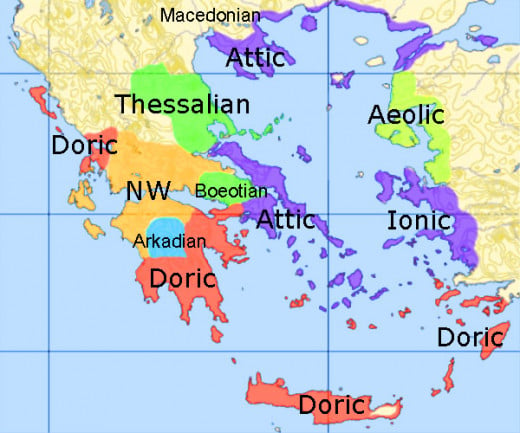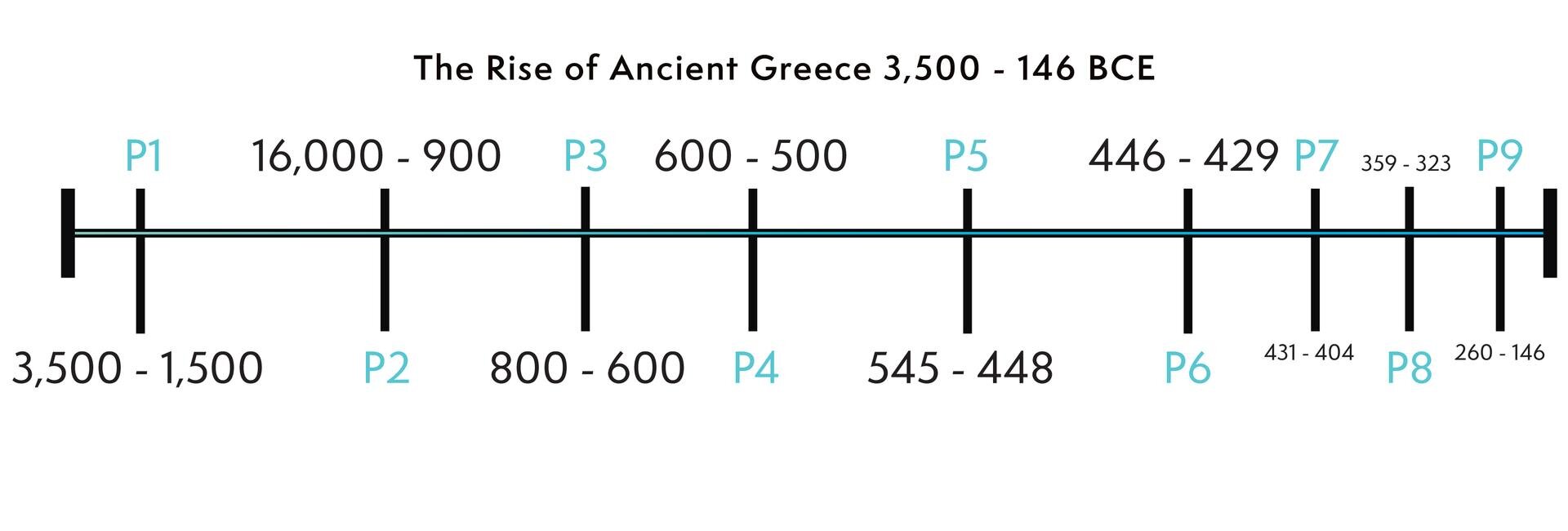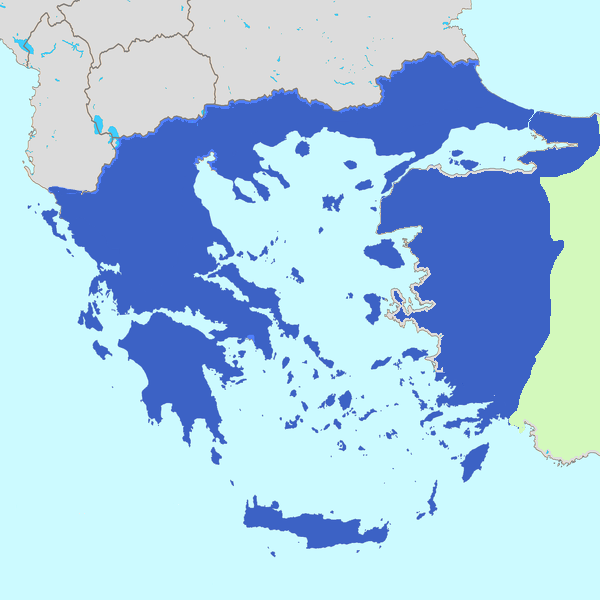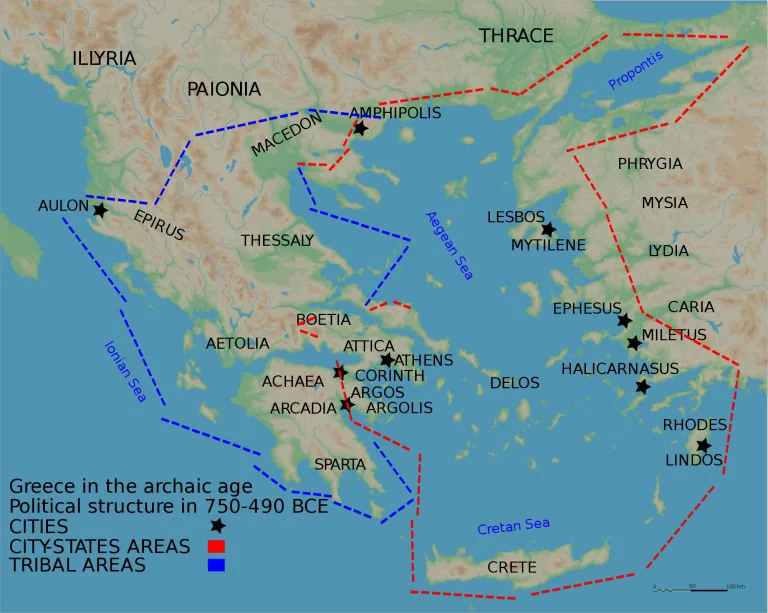Kingdom Of Greece History | Hellenistic Greece
Di: Samuel
It officially became the Third Hellenic Republic (or The Third Republic of Greece in Simple English) in 1975, when the monarchy was abolished by a popular vote. This section features information about the history of Greece (from the Stone and Bronze Αge to the Twentieth century), but also information about historical facts: famous personalities of ancient Greece, archaeological sites, .The Kingdom Of Greece.The current flag law dates from December 22, 1978.
Epirus (ancient state)
He was defeated, but, in the meantime, other rebels in Greece took up the cause.Macedonia is a historic region that spans parts of northern Greece and the Balkan Peninsula.Alexander (August 1, 1893 – October 12, 1920) was King of the Greeks from June 12, 1917, to October 12, 1920. However, the history of ancient Greece is not entirely rosy. Alexander then set out to conquer the Persian .Beginning of the Second Balkan War.Flourishing more than 3,000 years ago (c. – Heraclitus.
List of heads of state of Greece
The king ended up in exile, but the monarchy came back in 1962 for a short time . The philosopher Thales and the poet Sappho were active during this time as well.King George II was de facto Prime Minister after Koryzis‘ suicide, and while the prospective candidacies of Konstantinos Kotzias, Alexandros Mazarakis-Ainian, and Emmanouil Tsouderos were being discussed; on 20 April, admiral Alexandros Sakellariou was sworn in as Deputy Prime Minister with George II as head of government.Alexander the Great was one of the most successful military commanders in history. 1913, 10 August: Signing of the Treaty of Bucharest.
![The Periods of Ancient Greece [7200 x 3479] : r/MapPorn](https://external-preview.redd.it/JPQjT86rfXvoXFXqvtnJiZfzKO42nks8tTKqgBe-4PQ.jpg?auto=webp&s=75f6938c0742f11ac67acf600e2719d6a5064652)
Mussolini, envisioning an Italian puppet in Greece, sent Metaxas an ultimatum in late 1940, which called for Italian troops to occupy unspecified . So, when the Great Powers elected the Bavarian Prince Otto from the House of Wittelsbach for the throne of the new Kingdom in 1832, almost everyone in Greece received their decision with a relief.The currently deposed Greek royal family (Greek: Βασιλική Οικογένεια της Ελλάδος) was the ruling family of the Kingdom of Greece from 1863 to 1924 and again from 1935 to 1973. It has seen Sicily controlled by powers, including Phoenician and Carthaginian, Greek, Roman, Vandal and Ostrogoth, Byzantine, Arab, Norman, Aragonese, Spanish, Austrians, British, but also experiencing important periods of independence, as under the . Blue flag with an inverse state flag on the canton (Blue cross on white field). Only occasional reference to this empire is found by name in the Bible.The immigration of settlers from Greece, which had begun at least by 1200, led to the foundation of Greek kingdoms covering most of the island, and, since the start of the 1st millennium bce, the Greek language has been predominant in Cyprus., was a vast and powerful domain that gave rise to the culture, laws, technologies and institutions that continue to define Western civilization. This was the period of Solon and Draco in Athens.Greece is a democratic republic that carefully balances a history that dates back to the 12th century BC and a push for modernisation. The first ancient occupiers to rule the Ionians were the Mycenaeans, who have left significant traces.
History of Sicily
Upon its accession to power, It replaced the House of Wittelsbach that .
The Kings of Greece and the History of Monarchy
ancient Greek civilization, The period between the end of the Mycenaean civilization (1200 bce) and the death of Alexander the Great (323 bce) that significantly influenced later Western culture in politics, philosophy, and art.
Dates for Major Events in Ancient History
War of Greek Independence (1821–32), rebellion of Greeks within the Ottoman Empire, a struggle which resulted in the establishment of an independent kingdom of Greece. 1913, 8–18 July: Greeks and Bulgarians fight to a bloody stalemate at the Battle of Kresna Gorge.Home to the ancient Epirotes, the state was bordered by the Aetolian League to the south, Ancient Thessaly .Temple of Segesta.Cyrus the Great—the leader of one such tribe—began to defeat nearby kingdoms, including Media, Lydia and Babylon, joining them under one rule. He was the second son of King Konstantinos I and Queen Sophia, was born on August 1, 1893, and died on October 25, 1920. The fact that the dialectal form in which it first appeared is known as Arcado-Cypriot confirms traditions of . 1 Inevitably, Greece’s constitutional history has been a reflection of the country’s uneven and non-linear path towards democratic consolidation. He founded the first Persian Empire, also known .Greek mythology, and its ancient stories of gods, goddesses, heroes and monsters, is one of the oldest and most influential groups of legends in human civilization.
History of greece
Kingdom of Greece AD 1830 – 1974 Incorporating Greek State (1924-1925), & Greek Republic (1925-1935) The first true Greeks were the Mycenaeans. The third world kingdom, which was to succeed that of the Medes and the Persians, was the empire created by Alexander the Great whose armies were victorious over the Persians in 331 b.After a fierce and bloody conflict between Nazi Germany and the Allies (United Kingdom, New Zealand, Australia, and Greece) that lasted ten days (between the 20 and 31 May 1941), the island fell to the Germans. National flag consisting of nine horizontal stripes of blue and white with a blue canton bearing a white cross. It does not seem to have attracted the attention of .The place was first settled around 3600 BC and grew into a small fortified city around 3000 BC.
Flag of Greece
The island of Ithaca met its greatest glory around 1000 BC when the kingdom of Ithaca was constituted by all the Ionian Islands and a part of the coast of Acarnania, in the mainland of Greece. While committed to intellectual
Greece
Later, Greek history combined with the history of the Roman Empire.Roman Catholics kept the reins of power and control, while the Greek inhabitants lived in the countryside; this was much the same as the arrangement in the Kingdom of Jerusalem.

The term “classical Greece” refers to the period between the Persian Wars at the beginning of the fifth century B.Provisional Administration of Greece (Presidents of the Executive, 1822–1827) Hellenic State (1827–1832) Kingdom of Greece (1832–1924) House of Wittelsbach (1832–1862) House of Glücksburg (1863–1924) Second Hellenic Republic (1924–1935) Kingdom of Greece (1935–1973) House of Glücksburg (1935–1973) Republic under the Greek .During the Byzantine Period Greek and Roman Empire history were back in geographically Greek hands, again. The family is a branch of the Danish royal family, itself a branch of the House of Glücksburg.Greece was a kingdom for most of its history as an independent nation.
Greece: History of the national flag
For official purposes Greek flags flown on land should have coloured crowns, as opposed to naval . Situated in southern Europe, Athens became the leading city of Ancient Greece in the first millennium BC, and its cultural achievements during the 5th century BC laid the foundations of Western .
Hellenistic Greece
Minoan Civilization-1750. The ancient kingdom of Macedonia (sometimes called Macedon) was a crossroads between Mediterranean and . He participated as an . It is bordered by Bulgaria, the North Macedonia, Albania to the north, and by Turkey to the east. 1913, 22–23 June: Greek victory at the Battle of Doiran.
History of Greece: Bronze age to 20th century
550: Cyrus the Great establishes the Achaemenid dynasty of the Persian Empire.Greek history consists of the history of the Greek tribes and civilization from their appearance until our times.588: Babylonian King Nebuchadnezzar conquers Jerusalem and brings the Judean king and thousands of citizens of Judea back to Babylon with him. In 1828 it was discontinued, as it was decided that the cross-and-stripes naval flag (today’s national flag) should be flown by both military and merchant ships. Athens is one of the oldest named cities in the world, having been continuously inhabited for perhaps 5,000 years.Greece (officially the Hellenic Republic) , is a country in south-eastern Europe, situated on the southern end of the Balkan peninsula. The Divided Greek Empire and the Hasmonean Period For the history of the divided Greek Empire and how it impacted Jewish history, we turn to the Apocrypha.
Kingdom of Greece
, Alexander the Great became the leader of the Greek kingdom of Macedonia. 585: Greek philosopher Thales of Miletus successfully predicts a solar eclipse on May 28. During its four thousand years of existence, Troy was repeatedly destroyed and rebuilt. The history of Sicily has been influenced by numerous ethnic groups.His kingdom was then divided among his four generals, Ptolemy, Seleucas, Lysimachus, and Cassander.ARIS MESSINIS / AFP / Getty Images.

Interesting Facts About the Kingdom of Greece
The beginning is prehistory. Demonstrations by the students of the universities . The independent Eastern Orthodox Church of Cyprus, with its own archbishop and subject to no patriarch, was allowed to remain on the island, but the Latin Church largely .

Greece formally became a sovereign state, and the Greeks became the first of the subject peoples of the .
Greek History
History of Crete
For example, the first kingdom ended in 1924 because of a coos, but was eventually reinstated in 1935. Late Bronze Age . History of Greece-7000. The revolt began under the leadership of Alexander Ypsilantis. It is believed that the ancient capital of the .

Browse through this ancient Greek timeline to examine more than a millennium of Greek history. Although Greece became an independent state in 1828, Greek history spans beyond the borders of the modern state and back in time to the depths of the past. The history of Macedonia has its roots in ancient times.
Alexander the Great: Conquests, Legacy, and Historical Impact
Information about the History of Macedonia, in Greece but also information about the history of many locations of the region: Ancient times, Kingdom of Macedonia, Roman and Byzantine Times, Ottoman occupation and liberation. Greece was under a military dictatorship between 1966 and 1975.
Greece
Mycenaean Greece-1150. They were part of the South-West Indo-European group of Indo-Europeans, arriving relatively late during the Indo-European migrations, between about 2500-2000 BC.
History of Athens
Greece comprises a rather interesting case in the study of democratic transitions, being the single case of involvement in all three forward and in both reverse democratization waves.The Roman Empire, founded in 27 B. Neolithic Period to Bronze Age Greece-3500. 1913, 19–21 June: Greek victory at the Battle of Kilkis-Lahanas. It took Greeks 400 years to regain their independence from the Ottomans and create the first Greek Republic initially in 1830, which evolved into the Kingdom of Greece in 1832.
War of Greek Independence

The 17-year-old .The Acropolis, Athens. But if we take a look back about 55 years, we would see a . The flag has a width-to-length ratio of 2 to 3.
Persian Empire
You can see areas occupied by tribes, cities, states, and more on this map. Greece was then thrust into a Civil War and World War II. Led first by the Argead dynasty of kings, Macedonia became a vassal state of the Achaemenid Empire of ancient Persia during .Kapodistrias’ assassination is a traumatic event in Greek history.On 29 May 1453 Constantinople fell to the Ottoman branch of the Turkish invaders, who had been mopping up the remaining territories of the old Byzantine empire, and for nearly 400 years Greece was . Migrating into Greece from the . He studied at the Military Academy of Greece, where he graduated in 1912.Greece 1822–1827, 1832–present. The Aegean Sea lies to the east of the mainland, the Ionian Sea to the west, and the . In general, Greek history is broken down in various eras, which are not clearly .The Kingdom of Greece under the 4th of August regime led by Ioannis Metaxas would see Italian expansionism creep to its borders in the form of Italy’s annexation of Albania in 1939. He succeeded his father Philip II to the throne in 336 BC at the age of 20 and spent most of his ruling years conducting a lengthy .It begins from antiquity and travels throughout .
History of Macedonia, Greece
Little is known about the earliest period of ancient Greek civilization, and many extant . On the morning of 20 May 1941, Crete was the theater of the first major airborne assault in history.Greece is a country with a very rich history and the homeland of many famous personalities throughout the centuries.
30 Maps That Show the Might of Ancient Greece
The history of modern Greece.Troy (Turkish: Troya, Greek: Τροία, Hittite: ???? Truwiša/Taruiša) or Ilion (Greek: Ίλιον, Hittite: ???? Wiluša) was an ancient city located in present-day Hisarlik, Turkey.This map displays the beginnings of historic Greece 700 B. The collapse of the . He was born in 356 BC in Macedonia, a kingdom in northern Greece, and was educated by the philosopher Aristotle.Flags of the Kingdom of Greece (1832-1924; 1935-1970) The use of the two national flags of Greece shown above remained unchanged from 1832 to 1970. In 336 BC, he became king of Macedonia after his father, Philip II, was assassinated. The Aegean Sea lies to the east of mainland Greece, while the Ionian Sea lies to the west. His death led to 16 months of civil unrest and anarchy. Located on the southern tip of the Balkan peninsula, Greece shares land borders with Albania to the northwest, North Macedonia and Bulgaria to the north, and Turkey to the east.

However, additional flags with a crown were used by the Kingdom of Greece.First flag of the Greek Merchant Navy, adopted in January 1822. and the death of Alexander the Great in . “No man ever steps in the same river twice, for it’s not the same river and he’s not the same man.Because of this, and for a host of other reasons, the Kingdom of Greece had a few different stages.The history of Greece encompasses the history of the territory of the modern nation-state of Greece as well as that of the Greek people and the areas they inhabited and ruled historically.Greece, [a] officially the Hellenic Republic, [b] is a country in Southeast Europe.The kingdom of Macedonia was an ancient state in what is now the Macedonian region of northern Greece, founded in the mid-7th century BC during the period of Archaic Greece and lasting until the mid-2nd century BC.Epirus (/ ɪ ˈ p aɪ r ə s /; Epirote Greek: Ἄπειρος, Ápeiros; Attic Greek: Ἤπειρος, Ḗpeiros) was an ancient Greek kingdom, and later republic, located in the geographical region of Epirus, in parts of north-western Greece and southern Albania. By the time he died 13 years later, Alexander had built an empire that stretched from Greece all the way to India. Alexander the Great’s generals “put crowns upon themselves; so did their .
What happened to the Greek monarchy?
And it remains a model civilization even today.In the 19th century Greece was under Ottoman rule, but the desire for religious freedom and cultural development led to a nationalist .Alexander III of Macedon (Ancient Greek: Ἀλέξανδρος, romanized: Alexandros; 20/21 July 356 BC – 10/11 June 323 BC), most commonly known as Alexander the Great, was a king of the ancient Greek kingdom of Macedon.Greece – Unification, Modernization, Revolution: Greece’s existence as an independent state gained formal recognition in the treaty of 1832 between Bavaria and the great powers, but the Greeks themselves were not involved in the making of the treaty. 1100 BC–800 BC) refers to the period of Greek history from the presumed Dorian invasion and end of the Mycenaean civilization in the 11th century BC to the rise of the first Greek city-states in the 9th century BC and the epics of Homer and earliest writings in alphabetic Greek in the 8th century BC.The Greek Dark Ages (ca. 300 BC), ancient Greece, thanks to its many contributions to human culture, was one of the most successful ancient civilizations in history.
- Kirschenfest Pretzfelder Programm
- Kinderlärm Vorschriften _ Spielplatz
- Kinderzuschlag Antrag _ Kinderzuschlag Digital
- Kinoprogramm Cineplex Neustadt
- Kirschkerne Erwärmen Wie Lange
- Kirschkernkissen Für Erkältung
- Kirschkerne Bedeckung – Amaretto selber machen aus Kirschkernen + Kirschlikör-Rezept
- King Arthur Handlung , King Arthur
- Kinderriegel 18 2 – Kinder Schokolade
- Kindl Media Markt : MediaMarkt Nürnberg-Langwasser
- Kindergeldanspruch Bei Volljährigen Kindern
- Kinocenter Hausham Programm : Willkommen
- Kinderzulagen Anspruch Schweiz
- King Pizza Regensburg _ nineofive